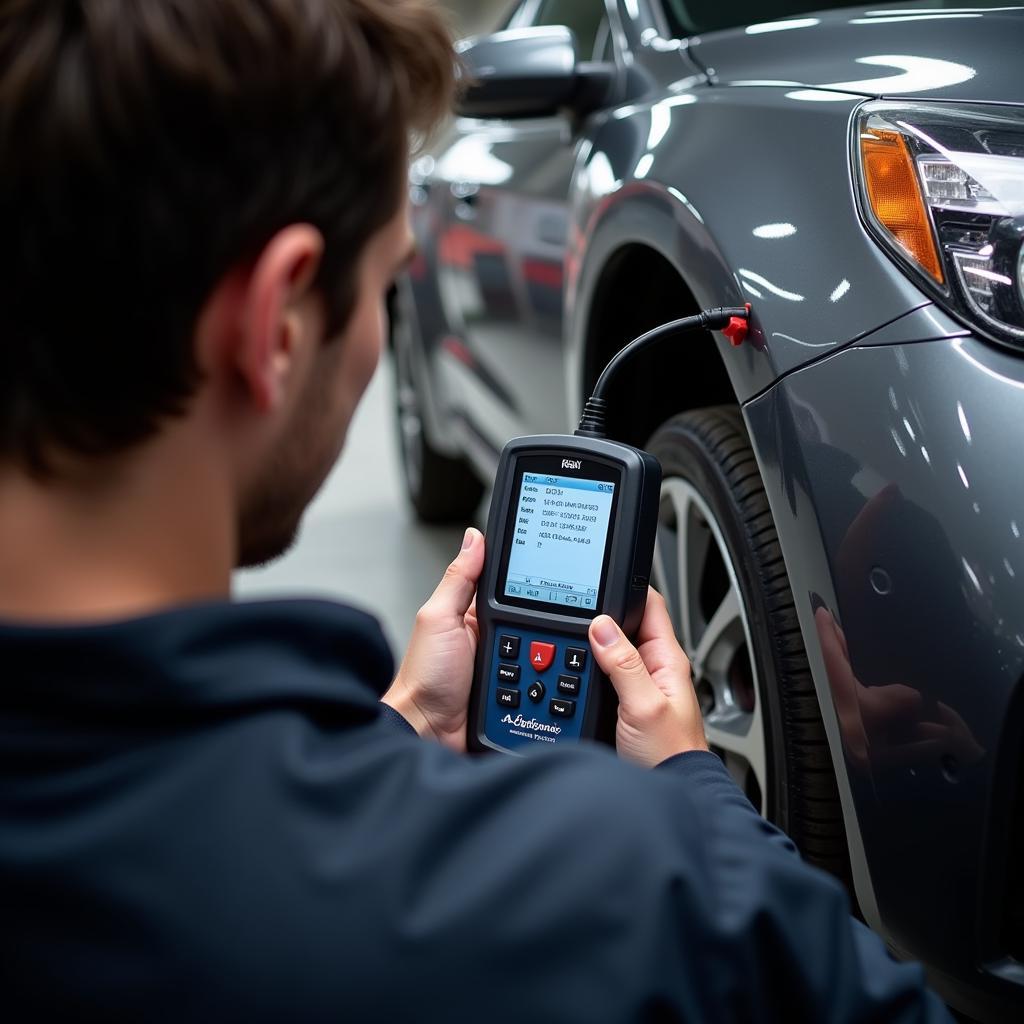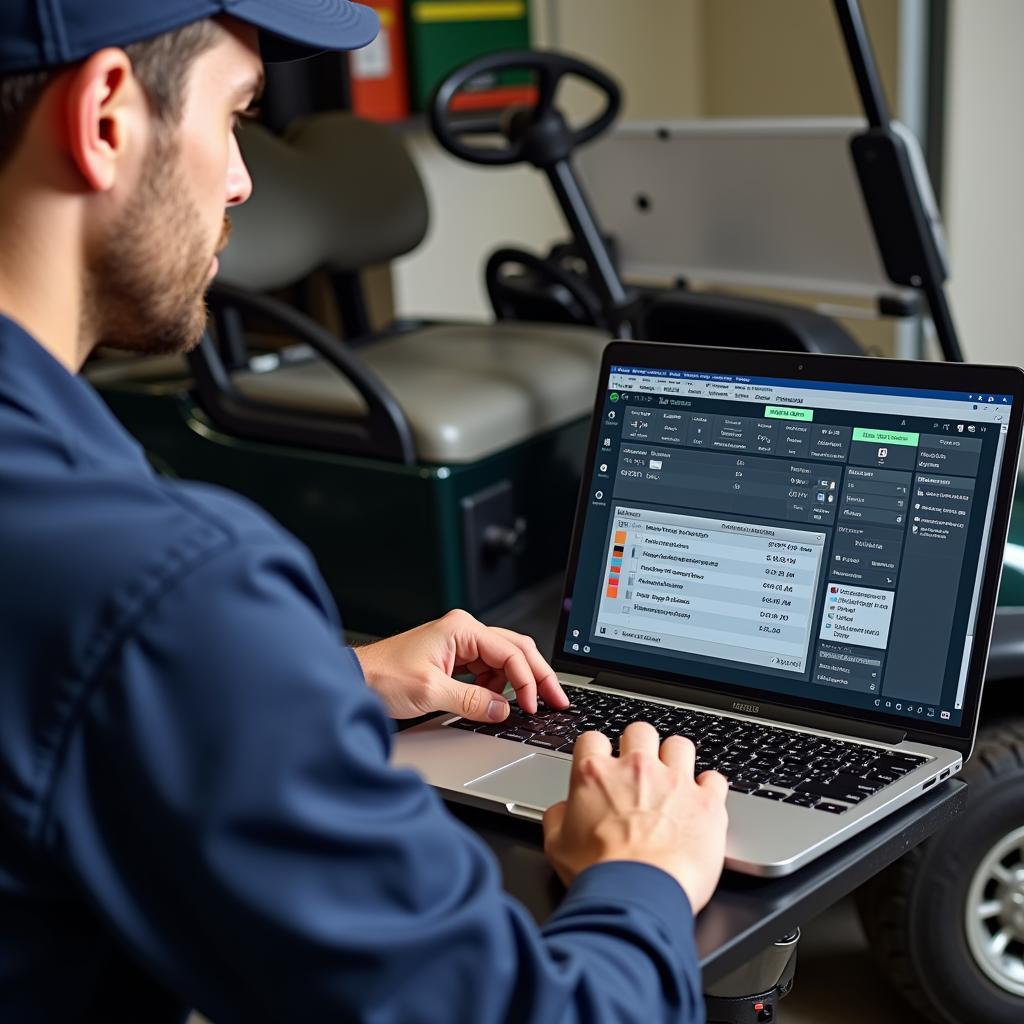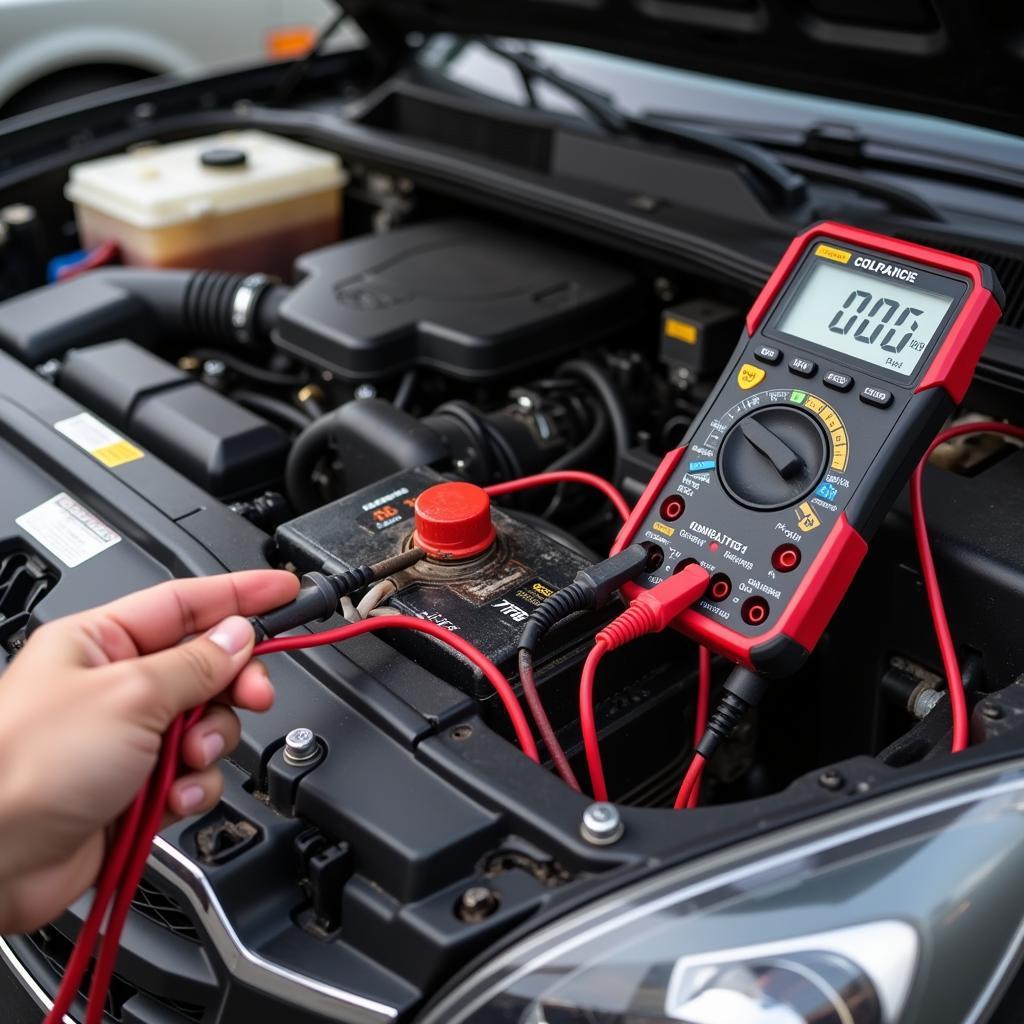Seeing both the “Service ESC” and “Service Parking Brake” lights illuminated on your dashboard can be alarming. These warnings often appear together and can indicate a range of issues, from simple sensor malfunctions to more complex problems within your vehicle’s electronic stability control (ESC) and braking systems. Understanding what these warnings mean and how to address them is crucial for your safety and the longevity of your car. Let’s delve into the potential causes and solutions.
Understanding the ESC and Parking Brake Systems
The Electronic Stability Control (ESC) system is a vital safety feature designed to prevent loss of control during cornering or slippery conditions. It works by monitoring wheel speed and steering angle, applying brakes individually to specific wheels when it detects a potential skid. A malfunctioning ESC can significantly compromise your vehicle’s handling, especially in adverse weather. Similarly, the parking brake is essential for keeping your vehicle stationary when parked. Problems with this system can lead to dangerous rolling, especially on inclines. The 2003 gmc sierra service brake system warning article provides more insight on brake system warnings in general.
Common Causes of the Dual Warning Lights
Several factors can trigger both the “Service ESC” and “Service Parking Brake” warnings simultaneously. One common culprit is a faulty wheel speed sensor. These sensors provide crucial data to both the ESC and anti-lock braking system (ABS), and a malfunction can disrupt both systems. Low brake fluid can also activate these warnings, as it directly impacts braking performance and can trigger the ESC system. Other potential causes include issues with the brake light switch, a faulty ABS module, or even problems with the vehicle’s wiring harness. The appearance of audi brake warning lights can also indicate similar underlying issues.
What if the parking brake is engaged? Sometimes, drivers simply forget to disengage the parking brake, triggering the warning. This is a straightforward fix but often overlooked.
“Regular maintenance and prompt attention to warning lights can prevent costly repairs and ensure vehicle safety,” says automotive expert, Michael Stevenson, ASE Certified Master Technician.
Diagnosing and Fixing the Problem
Diagnosing the exact cause of these dual warnings requires a systematic approach. Start by checking the parking brake. If it’s engaged, release it and see if the warnings disappear. Next, check your brake fluid level. If it’s low, top it off and observe if the lights go out. However, low brake fluid often indicates a leak, requiring professional inspection. You might find information on resetting brake pad warning lights, like the 2010 mini brake pad warning light reset, helpful in some cases.
 Checking the Brake Fluid Level in a Car
Checking the Brake Fluid Level in a Car
If these simple checks don’t resolve the issue, it’s time for more advanced diagnostics. A professional mechanic can use a diagnostic scanner to read the error codes stored in your vehicle’s computer. These codes pinpoint the specific area causing the problem, allowing for targeted repairs. For example, a code related to a wheel speed sensor indicates a potential sensor failure. Remember that ignoring these warnings can lead to more serious problems down the line, such as complete brake failure or loss of vehicle control.
What if it’s a software issue?
Sometimes, these warnings might be triggered by software glitches within the vehicle’s electronic control units (ECUs). In such cases, remote software updates and programming can resolve the issue. This involves connecting the vehicle to specialized diagnostic equipment and uploading the latest software version provided by the manufacturer. This process can address bugs, improve system performance, and even clear erroneous warning lights. For instance, if the ESC module is running outdated software, an update might resolve communication issues with other systems, like the parking brake. Understanding the meaning of a e46 brake warning light can also sometimes involve software diagnostics.
 Mechanic Using a Diagnostic Scanner on a Car
Mechanic Using a Diagnostic Scanner on a Car
Conclusion
Seeing “Service ESC” and “Service Parking Brake” warnings together can be concerning, but understanding the potential causes and solutions empowers you to take appropriate action. From simple checks like the parking brake engagement and brake fluid level to more advanced diagnostics and software updates, addressing these warnings promptly is essential for your safety and the proper functioning of your vehicle. “Addressing these issues promptly not only ensures safety but also prevents further damage and potentially costly repairs,” emphasizes Dr. Sarah Miller, Automotive Engineer. Don’t ignore these warnings; prioritize your safety and vehicle health by taking action today.
FAQs
- Can I drive with the Service ESC and Service Parking Brake lights on? While you might be able to drive, it’s strongly recommended to avoid driving until the issue is diagnosed and resolved, as your safety systems might be compromised.
- How much does it cost to fix these warnings? The cost varies depending on the underlying cause. A simple brake fluid top-up might be inexpensive, while replacing an ABS module can be significantly more costly.
- Can a DIYer fix these problems? Simple checks like verifying the parking brake and brake fluid level are DIY-friendly. However, more complex diagnostics and repairs require professional expertise.
- Are these warnings related to the ABS system? Yes, the ESC and parking brake systems often interact with the ABS, and issues within one system can affect the others.
- How often should I check my brake fluid? Checking your brake fluid level at least once a month is a good practice.
- What if the warnings reappear after being fixed? If the warnings return, it indicates that the underlying problem hasn’t been fully resolved, requiring further diagnostics.
- Can extreme temperatures trigger these warnings? Extreme temperatures can sometimes affect sensor performance and potentially trigger these warnings, especially in older vehicles. You might find information regarding a brake warning light f150 relevant in certain situations involving temperature fluctuations.



